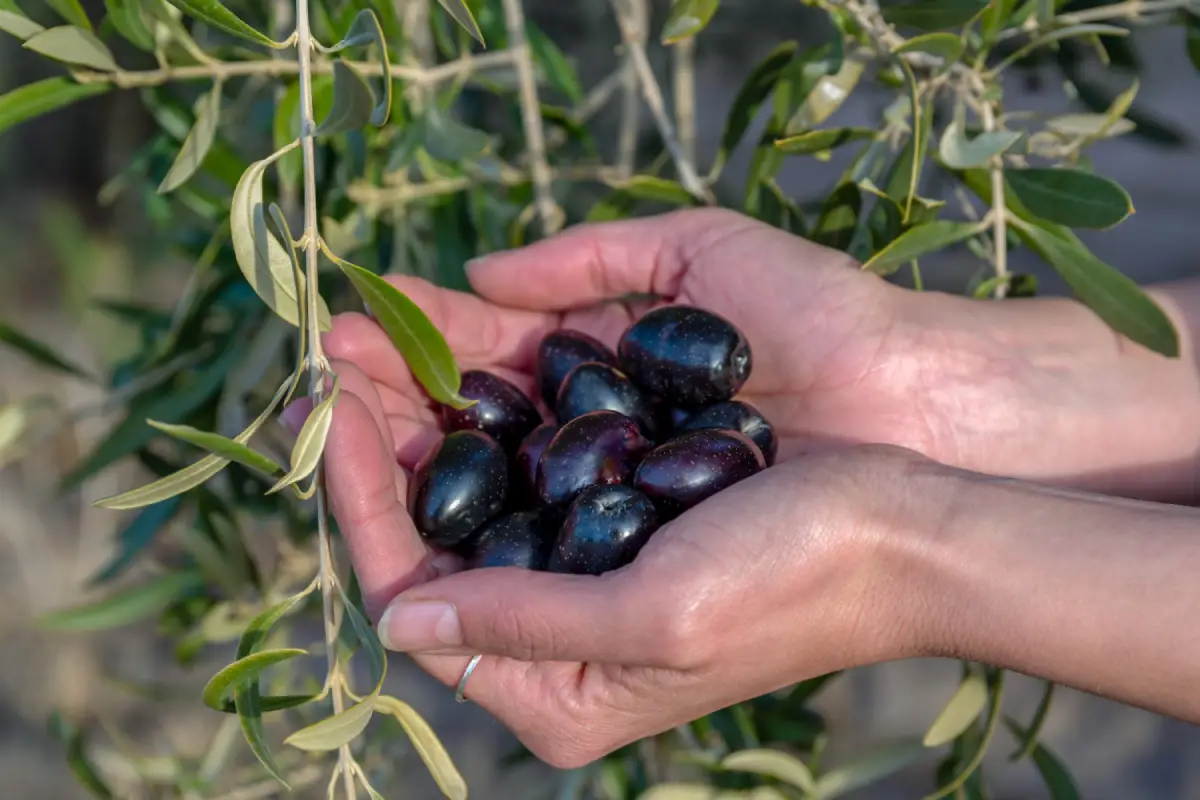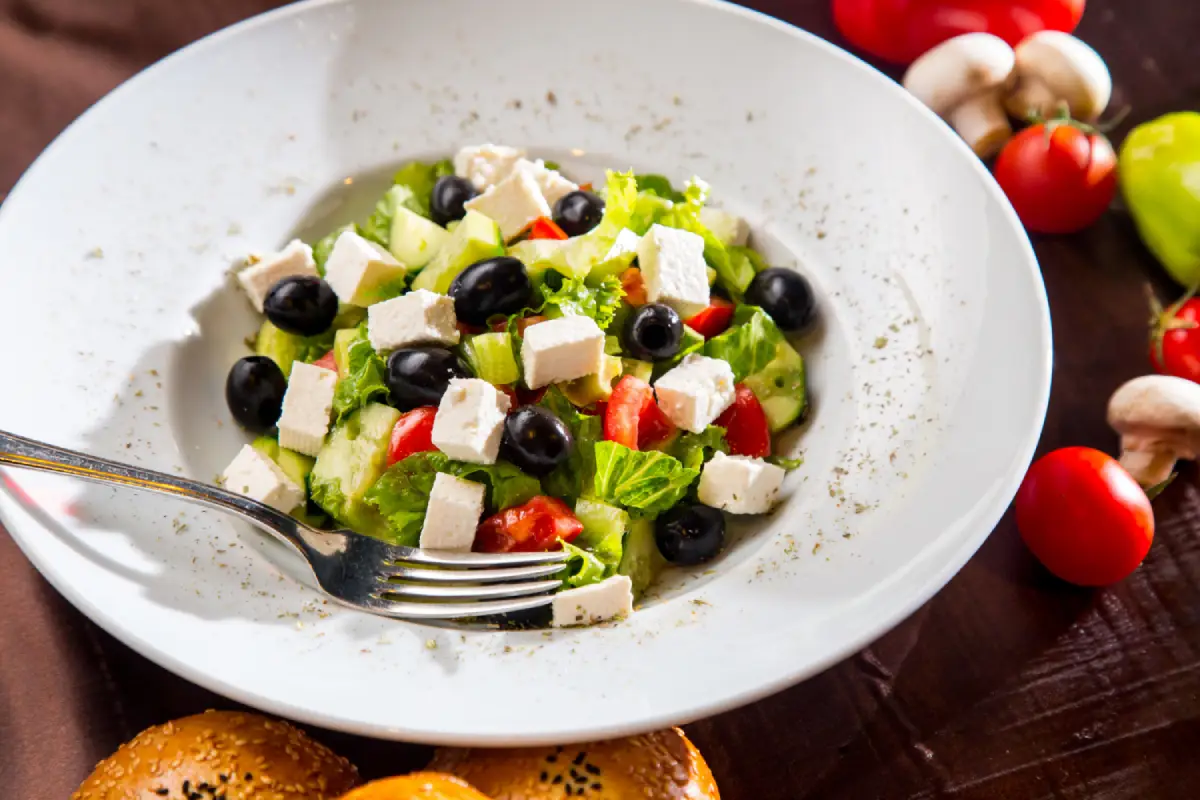Welcome to the world of black olives, a true culinary delight. Often in the shadow of green olives, black olives offer unique flavors and numerous health benefits. In this article, we delve into their nutritional value, culinary uses, and much more.
These olives connect us from Mediterranean groves to our kitchens. They are a staple in many cuisines. Whether you’re a chef, a health enthusiast, or just curious, this guide is for you. We’ll explore their health aspects, compare them with green olives, and answer common questions.
Nutritional Profile
Understanding the nutritional value of black olives is key to appreciating their role in a healthy diet. This section delves into the nutritional components that make these olives a nutritious choice.
Key Vitamins and Minerals
Firstly, these olives are a treasure trove of vital vitamins and minerals. These include:
- Vitamin E: Notably, Vitamin E in these olives acts as an antioxidant, protecting cells from oxidative stress.
- Iron: Furthermore, the iron content in these olives is crucial for healthy blood, aiding in the production of hemoglobin.
- Copper: Additionally, copper found in olives supports nerve function and collagen production.
Antioxidants and Health Benefits
Beyond vitamins and minerals, olives are rich in antioxidants. These play a critical role in combating free radicals and supporting overall well-being. Some key health benefits include:
- Heart Health: Significantly, the oleic acid in these olives can enhance heart health by reducing inflammation and cholesterol levels.
- Skin and Hair Health: Moreover, the antioxidants in these olives promote healthy skin and hair, offering protective and nourishing effects.
For a deeper dive into the health benefits of olives, check out Olive Oil Times.
Caloric Content and Dietary Considerations
Although nutritious, it’s also important to be mindful of the caloric content of dark olives. They are calorie-dense due to their fat content, so moderation is crucial. Here’s what to consider:
- Moderation in Consumption: Because of their high calorie density, it’s advisable to consume olives in moderation, especially for those watching their calorie intake.
- Salt Content: Finally, many olives are cured in brine, which can be high in sodium. Opt for low-sodium varieties if you’re concerned about sodium intake.
In summary, understanding the nutritional profile of olives helps in making informed dietary choices. These small fruits not only add flavor to dishes but also offer a host of health benefits.
Culinary Delights: Incorporating Black Olives in Your Diet
Black olives are not just a delightful addition to dishes; they bring a unique culinary versatility. This section explores the various ways you can incorporate these flavor-packed fruits into your everyday cooking.
Popular Recipes and Dishes
Black olives offer a rich, earthy flavor that complements a wide range of cuisines. Here are some beloved recipes and dishes where these olives play a starring role:
- Mediterranean Salads: Toss dark olives with fresh greens, tomatoes, cucumbers, and feta cheese for a vibrant and refreshing Mediterranean salad.
- Pizzas and Flatbreads: Elevate your pizzas or flatbreads with sliced olives, adding a burst of savory flavor.
- Pasta Dishes: Give an extra zing to your pasta sauces with chopped olives, or simply stir them into your favorite pasta for a Mediterranean twist.
Creative Cooking Ideas
Beyond the classics, black olives can be used in creative ways to add depth and complexity to your dishes:
- Tapenades and Spreads: Blend the olives with herbs, garlic, and olive oil to create delicious tapenades or spreads, perfect for appetizers or snacks.
- Baked Goods: For a unique twist, add chopped the olives to bread or savory muffins, providing a subtle, salty undertone.
- Marinades and Dressings: Use the olives in marinades or dressings to impart a rich, umami flavor to grilled meats or salads.
Pairing Black Olives with Other Ingredients
The robust flavor of black olives pairs wonderfully with various ingredients:
- Cheeses and Wines: Pair the olives with strong cheeses or robust wines for a delightful flavor contrast.
- Fresh Vegetables and Herbs: Combine them with fresh vegetables and herbs like basil or oregano for a burst of freshness.
- Meats and Fish: Dark olives complement the richness of meats and the delicacy of fish, adding an extra layer of flavor to these dishes.
Incorporating black olives into your diet opens up a world of culinary possibilities. Their unique flavor can transform ordinary meals into extraordinary culinary experiences. Experiment with dark olives and discover new favorites in your kitchen!
Black vs. Green Olives: Understanding the Differences
One of the most common curiosities about olives is the difference between black and green varieties. This section clarifies the distinctions and similarities, enriching your understanding of these two popular olive types.
Color and Ripeness
First and foremost, the primary difference lies in their ripeness. Black olives are fully ripened olives, while green olives are picked before they reach full maturity. This difference in ripening stages contributes significantly to their distinct flavors and textures.
Taste and Texture
Moreover, dark olives typically have a softer, meatier texture and a milder, sweeter flavor compared to green olives. On the other hand, green olives are firmer and have a more bitter, tangy taste, often due to the different curing processes they undergo.
Nutritional Content
In terms of nutrition, both black and green olives offer similar health benefits, including healthy fats and antioxidants. However, the ripening process can affect their nutrient profiles slightly. Our olives, for instance, tend to have higher oil content and thus, more calories.
Curing and Processing
Additionally, the curing process is an essential factor in flavor development. Our olives are usually cured in water or brine, while green olives can be cured in various ways, including using lye or brine, and sometimes stuffed with pimientos or garlic for added flavor.
Usage in Cuisine
When it comes to culinary uses, the choice between black and green olives often depends on the dish. Dark olives are a staple in Mediterranean dishes, while green olives are commonly used in tapenades, salads, and as appetizers.
In essence, both black and green olives have their unique place in the culinary world. Understanding their differences helps you make more informed choices in the kitchen and appreciate the diversity these small fruits offer.
Frequently Asked Questions
Are Black Olives Good for You?
Absolutely! Black olives are packed with nutrients like vitamins, minerals, and antioxidants. They offer various health benefits, including heart health support and anti-inflammatory properties. However, moderation is key due to their high fat and sodium content in some varieties.
Which Olives are Healthier: Green or Black?
Both green and black olives have similar nutritional profiles, rich in healthy fats and antioxidants. The choice between them often comes down to personal taste preference and specific dietary needs, as their calorie and sodium content can vary.
Are Black and Green Olives the Same?
While they come from the same tree, black and green olives are not the same. The difference lies in their ripeness; black olives are fully ripened, while green olives are harvested before reaching full maturity, affecting their flavor and texture.
Are Black Olives Black Naturally?
Yes, black olives are naturally black in color, which indicates full ripeness. Some olives may be artificially darkened for consistency, but traditionally, the black color is a natural result of the olive reaching full maturity.
Can Dogs Eat Black Olives?
In moderation, dogs can eat black olives as they are non-toxic to them. However, it’s important to ensure they are plain and free from pits or added seasonings, especially salt, which can be harmful to dogs. Learn more about the safety of black olives for dogs from the American Kennel Club.
Can Dogs Have Black Olives?
Yes, dogs can have black olives in small quantities. They should be unsalted and pitted to avoid any health risks. Always introduce any new food to your pet gradually and in moderation.
Conclusion: Embracing the Richness of Black Olives
As we conclude our exploration of the world of black olives, it’s clear that these small fruits are more than just an ingredient; they are a treasure trove of flavor, nutrition, and culinary versatility. These olives add a unique touch to various dishes, enriching our palates with their distinct taste and texture.
A Staple in Healthy Diets
We’ve discovered that dark olives are not only delicious but also offer significant health benefits. Packed with vitamins, minerals, and antioxidants, they can be a valuable addition to a healthy, balanced diet. Remember, moderation is key, especially considering their calorie and sodium content.
Versatility in Cooking
From salads and pizzas to pasta and more, dark olives can transform the simplest of dishes into something special. Their ability to complement different ingredients makes them a favorite among chefs and home cooks alike.
Understanding and Appreciation
Through our comprehensive look at dark olives, including comparisons with green olives and answering frequent queries, we hope to have deepened your understanding and appreciation of these versatile fruits. Whether you’re using them in traditional Mediterranean recipes or experimenting with new culinary creations, theser olives are sure to add depth and character to your meals.
Final Thoughts
In summary, dark olives are more than just a side on your plate. They’re a testament to the rich flavors and health benefits that nature offers. We encourage you to embrace the versatility and deliciousness of these olives in your culinary adventures.
Thank you for joining us on this flavorful journey through the world of black olives. May your kitchen always be filled with the robust aromas and delightful tastes of these wonderful fruits.




